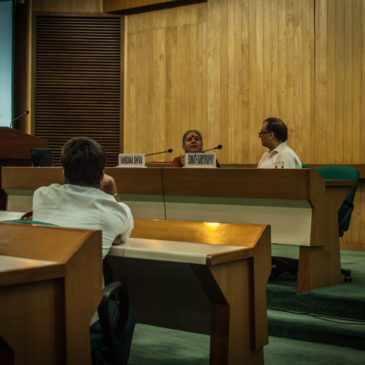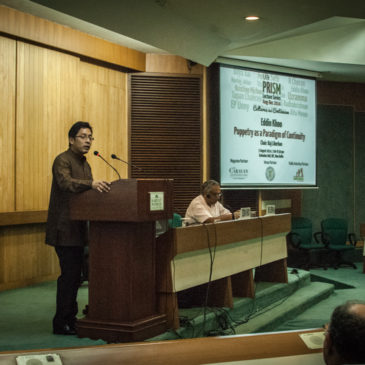Vandana Shiva: Food as Continuity
Opening the second edition of the LILA PRISM lecture series, Malaysian puppetry conservationist Eddin Khoo had reaffirmed cultures, history and memory as the subversive forces to political shortsightedness. In this second event, ecology activist Vandana Shiva forwarded the confirmation of cultures as the main force of continuity. In fact, Vandana Shiva’s response was but inevitable: it is only in the last four centuries that the word ‘culture’ shied away from its initial meaning – cultivation, growing soils – to the establishment of a cardinal metaphor: human culture as the cultivation of the mind, of manners, of practices. Not only could humanity sprout through agricultural innovations, but the very elaboration of cultures, traditions, customs also followed the paradigm of nature. And at the heart of culture, of cultivation, is food. Food is life. In Sanskrit, Pran means rice, and life.



